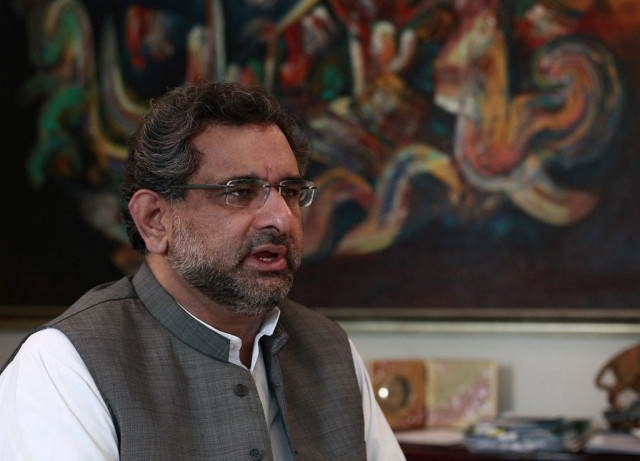Govt left shame-faced by persistent blackouts
Continuing load-shedding prompts PM to confer; recent outages due to ‘technical error’

PHOTO: REUTERS
Just a few days ago, the government ran ads in the print and electronic media to claim credit for ending load shedding across Pakistan. However, in the days that followed, power outages – this time due to ‘technical faults’ – persisted in different parts of the country, including the federal capital.
In this context, PM Abbasi on Tuesday presided over a meeting of the Cabinet Committee on Energy (CCE) to discuss the options to meet the energy demands.
“The meeting also reviewed various power sector development projects which are being set up to diversify the existing energy mix of the country including wind, solar and hydel power projects,” said a statement issued by the PM Office after the moot.
An official source said the PM sounded somewhat relieved when he was told that the recent spells of heavy rains would help increase the hydel power generation and end power outages ‘for the next few weeks, at least.’
PM given misleading figures for summer load-shedding plan
“Load shedding would not be an issue for the next few weeks. Thereafter, we would be expecting more rains by the end of January and start of February. That’s what we have been doing—waiting for the divine intervention to meet our energy needs,” the source said.
He said the power authorities had misled the PM into believing that load shedding was not being observed across the country ‘for even a second’. However, the premier was appalled when some PML-N leaders and his own constituents in Murree told him about continuing power outages.
Taking notice of this load shedding, the PM had ordered that in-charge of all grid stations where load shedding was carried out be taken to task. Recently, some officials of different distribution companies (DISCOS) were suspended allegedly for their failure to stop load shedding.
In a recent meeting held to review the power situation, the PM was informed that power outages in the country were not due to energy crisis but due to some ‘technical faults’ in the distribution networks.
Abbasi, who is not ready to believe the power officials’ claims anymore, came down hard on the authorities concerned and directed them to upgrade distribution networks in the meeting held on November 28, sources said.
With load-shedding ongoing, PM orders performance probe
Since October, Abbasi has been insisting publicly that load shedding would end by November 2017, a month which has already passed.
After assuming charge on August 1, following the disqualification of Nawaz Sharif, Premier Abbasi had established the new Ministry of Energy, comprising power and petroleum divisions, in a bid to improve their functioning, but he is not satisfied with its performance.
According to a press release issued from the PM Office in October, the PM had also “directed all relevant stakeholders to increase coordination for optimum utilisation of available resources and ensuring maximum efficiency in the power sector.”
Lately, the government functionaries have been taking pride in what they claim is ‘surplus’ electricity generation of up to more than 2,500 MW, which implies that electricity is being generated in excess of its demand, but the ground realities tell a different story.
“The meeting discussed threadbare various policies including power cogeneration by sugar industry and the renewable energy policy 2006,” the PM Office statement said. “It was decided to introduce suitable amendments in the existing policy framework in order to address various issues relating to power tariff.”
Power Minister Awais Leghari, State Minister for Petroleum Jam Kamal Khan, secretaries of the divisions concerned and other senior officials attended the meeting.



















COMMENTS
Comments are moderated and generally will be posted if they are on-topic and not abusive.
For more information, please see our Comments FAQ